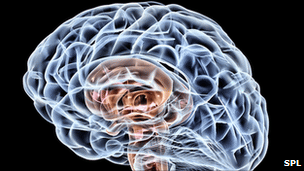| ||||||||||||||||||||||||||||||||||||||||
|
Scientists say research into mental illnesses such as depression is facing a funding crisis. 科学家称对诸如抑郁症之类的精神病的研究面临资金短缺的状况。  Scientists fear the cost of getting drugs to the market place is holding back brain research A report by the European College of Neuropsychopharmacology said private companies were pulling out due to the challenge of bringing drugs to market. It called for more investment and changes to the way trials take place. The report was the result of a summit of more than 60 representatives of governments, universities, the pharmaceutical1(制药的) industry and patient groups. Higher failure rate It said up to 80% of funding for brain research in Europe had traditionally come from the private sector2. However, pharmaceutical companies were retreating from the field because of the cost of bringing drugs as far as the consumer. The report said it took much longer to develop drugs for mental illness - 13 years on average. Those drugs had a higher failure rate and were harder to get licensed3 for use, it said. Only one new anti-depressant has been approved in Europe, agomelatine, in the past 10 years. Professor Guy Goodwin, from the University of Oxford4, said a lack of funding could lead to a "generational crisis" in neuroscience research and training. He said there should be more public money invested in brain research: "The cost and burden are really quite high, yet research attracts disproportionately(不成比例地) low investment. "Public investment in research should be somehow related to the burden of the disease." The report suggested ways of encouraging more people to invest, such as increasing the patent length for psychiatric drugs - making them more profitable. A European "medicines chest" was also suggested. Pharmaceutical companies would donate drugs they were no longer using for research, which could then be used by other organisations. The report suggested that drugs discarded for treating Alzheimer's disease, for example, could be used in research for psychiatric disorders5. Professor David Nutt, of Imperial College London, described the current situation as "madness". He said: "With Europe's extraordinary tradition in neuroscience innovation relying so heavily on private-sector investment, the consequences for the region's research base and public-health agenda are of major concern." 点击  收听单词发音 收听单词发音
|
||||||||||||||||||||||||||||||||||||||||
上一篇:德国被评全世界最无趣国家 下一篇:伊朗两名被囚医生获曼恩健康奖 |
||||||||||||||||||||||||||||||||||||||||
- 发表评论
-
- 最新评论 进入详细评论页>>



